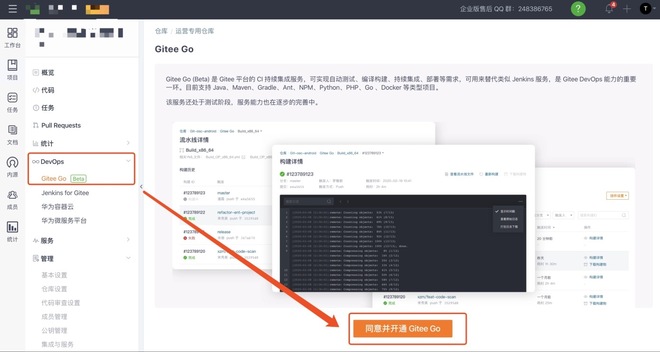China is creating its own GitHub called Gitee
- Tram Ho
The US-China conflict is dividing the tech industries of these two countries deeply, opening opportunities for Chinese companies – from smartphone chip makers and electric cars to software and capital. is the backbone of the day-to-day operations of millions of businesses.
Chinese companies now control most of the internet’s consumer services, but many of the underlying technologies that prop up enterprise hardware and software remain in the hands of Western firms. As the technology industry increasingly gets caught up in a spiral of large-scale geopolitical conflict, users and their customers are the ones most affected. Huawei’s plan to ditch imported chips is just one of many examples showing the dangers of reliance on foreign technology by Chinese companies.
Another area that worries the tech community in this country is source code hosting. Chinese developers heavily depend on GitHub, as evidenced by the fact that when the Chinese government banned the website in 2013, former Google China director Kaifu Lee spoke up. And now, China continues to fear that a political conflict with the United States will affect GitHub.
This situation is not unprecedented. Last July, GitHub (owned by Microsoft) slashed certain services for users in U.S. embargoed countries including Iran, Syria, and Crimea, sparking outrage and panic in the global developer community.
Gitee, a seven-year-old platform, is at the heart of an effort to bring the source code of the “repatriation” businesses the Chinese are working on. The Ministry of Industry and Information Technology (MIIT), one of China’s leading technology policymakers, recently chose Gitee to undertake the construction of an ” open source hosting platform. , independent for China “.
The project will be conducted by an alliance led by Open Source China, the Shanghai-based company that runs the open-source community of the same name and Gitee. The hosting service will be a proposed project by the government, with support from research universities and institutions from the private sector – a group of 10 organizations including Huawei, which is currently facing numerous difficulties because supply chain was interrupted in the midst of a political storm.

” If China does not have its own open source community to maintain and manage source code, our domestic software industry will be susceptible to uncontrollable factors ” – Huawei director Wang Chenglu said at an event in August last year, shortly after GitHub was forced to comply with US sanctions laws.
Gitee claims to have stored more than 10 million open source repositories and provided services to more than 5 million developers. By comparison, GitHub is said to have 100 million repositories and around 31 million developers worldwide as of November last year.
The question is whether Gitee’s platform will be able to convince Chinese developers to “repatriate” from GitHub – or from Tencent’s domestic rival Coding.net – given that they have. received backing from many industrial giants. In addition, it is not clear how GitHub will react to limit the “export” of the source code, because one of their leaders has hinted at the possibility of opening a subsidiary in China.
On the Gitee side, they are clearly confident that there is an expanding market for a Chinese-owned GitHub alternative.
” The world is a place where hundreds of flowers can bloom. Overseas markets have GitHub and other platforms. In China, there are also many organizations that promote open source software, like Gitee ” – the creator Open Source China with the nickname “Hongshu” wrote so.
” An open source ecosystem has not been built overnight. It is a process like building a tower from a foundation. We have faith in the innovative power of Chinese developers. We also believe in our own patience and strength .
Reference: TechCrunch
Source : Genk
